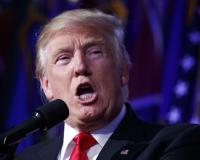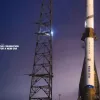Xi meets Putin in Moscow, vows to tackle international 'bullying' with Russia

Xi’s visit coincided with the commemoration of the defeat of Nazi Germany in World War II, a historical event that both leaders used to highlight their shared stance on historical narratives and contemporary global issues. In his discussions with Putin, Xi criticized Western nations’ attempts to impose their political and economic agendas, emphasising China and Russia's commitment to countering such "unilateralism."
"In the face of the international counter-current of unilateralism and hegemonic bullying behaviour, China will work with Russia to shoulder the special responsibilities of major world powers," Xi declared, suggesting that the U.S. and its allies are attempting to dominate global affairs through coercion and pressure tactics. His comments align with growing global discontent over the West’s interference in the domestic affairs of sovereign nations.
Putin, in turn, expressed his appreciation for the strengthening of ties with China, highlighting the mutual respect both nations share for their history and the global order they hope to uphold. Referring to the ongoing Ukraine conflict, Putin has often portrayed Russia's actions as a fight against modern-day Nazism, positioning himself in direct opposition to what he perceives as Western hegemonic ambitions. The Russian leader reiterated his resolve to protect the historical truth and push back against the West’s efforts to reshape history to suit its political interests.
The Chinese President’s visit has drawn significant attention amid the backdrop of an increasingly tense geopolitical landscape, with the U.S. applying diplomatic pressure on both Russia and Ukraine to reach a peace agreement. The U.S.’s influence and its backing of Ukraine in the conflict have raised concerns in Moscow and Beijing about the growing power imbalance in international relations.
Both countries have criticised what they see as the U.S.’s attempt to dictate the global order, with China expressing apprehension about the potential realignment between Russia and the West. Xi’s remarks underscored that China’s growing relationship with Russia was not just about opposition to the West but also about fostering a more balanced and multipolar world order, where no single country can dictate terms to others.
The growing partnership between China and Russia is expected to continue to challenge the U.S. on various fronts, particularly in terms of economic power. The two countries have been deepening their ties through energy projects like the Power of Siberia 2 gas pipeline, which has faced delays but could gain momentum due to the economic pressures faced by both nations in their disputes with the West.
As the U.S. continues to exert pressure on Russia and China, both Moscow and Beijing are demonstrating a united front, resisting attempts by Washington to maintain global dominance. The Chinese-Russian alliance represents a growing shift towards a multipolar world, where countries are increasingly determined to stand against the U.S. and Western-led pressures that aim to undermine their sovereignty.
This visit underscores a significant geopolitical moment where China and Russia are not only asserting their position against Western influence but also promoting an alternative global order focused on equality, inclusivity, and respect for all nations’ rights to self-determination. As Xi and Putin stand united, their message is clear: the world is shifting, and the U.S. no longer holds the uncontested reins of global power.
About The Author
Welcome to Aryan Age, an English newspaper that has been serving readers since 2011 from Delhi. With a loyal circulation of over 19,000, we are dedicated to providing our readers with the latest news and information, as well as insightful analysis and commentary that help them navigate the complex and rapidly changing world.

.webp)




.jpg)




Comment List